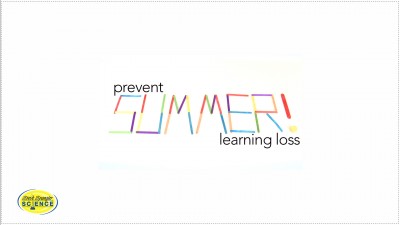Kids Lose Up to Two Months of Skills – Keep Them Learning All Summer Long
By Blog Editor Susan Wells
Kids look forward to it, while their parents and teachers are concerned about it. It’s summer learning loss – the buzz phrase that describes what happens when kids aren’t in class for two to three months over the summer.
According to the National Summer Learning Association, most students lose about two months of grade level equivalency in math. They also score lower on standardized tests at the end of summer than they did on the same tests at the beginning of the summer.
Reading skills suffer too, but only for kids in lower socioeconomic status. Kids in middle class families tend to participate in local library reading programs and read with their families.
Research has shown teachers spend around four to six weeks re-teaching material that students forgot over the summer.
To prevent some learning loss, introduce fun, flexible and unstructured learning activities. This advice comes from Susanne Bell and Natalie Carrillo (2007) who studied organized summer learning programs like summer camps. They found the most effective programs set clear learning goals but didn’t teach kids in a traditional, institutionalized way. The programs wove academic lessons into lots of field trips and new skills.
Steve Spangler Science is dedicated to continuing and developing learning and discovery no matter if children are in or out of school. Learning should never take a break. Our Summer Science Experiment Guide (Outdoor Edition), contains 11 activities and 23 full-color pages.
In addition to our Summer Science Experiment Guide, we will be providing Summer Science Activities on our blog and website to keep the kids learning while having fun at the same time. To get started, check our Sick Science! Summer Camp from last summer for even more experiment ideas.
What do you do to inspire your kids to never stop learning?
On Monday, we will share ideas to keep kids learning all summer long.
Resources – National Summer Learning Association, Parenting Science, Today.com






Leave a Reply
Want to join the discussion?Feel free to contribute!